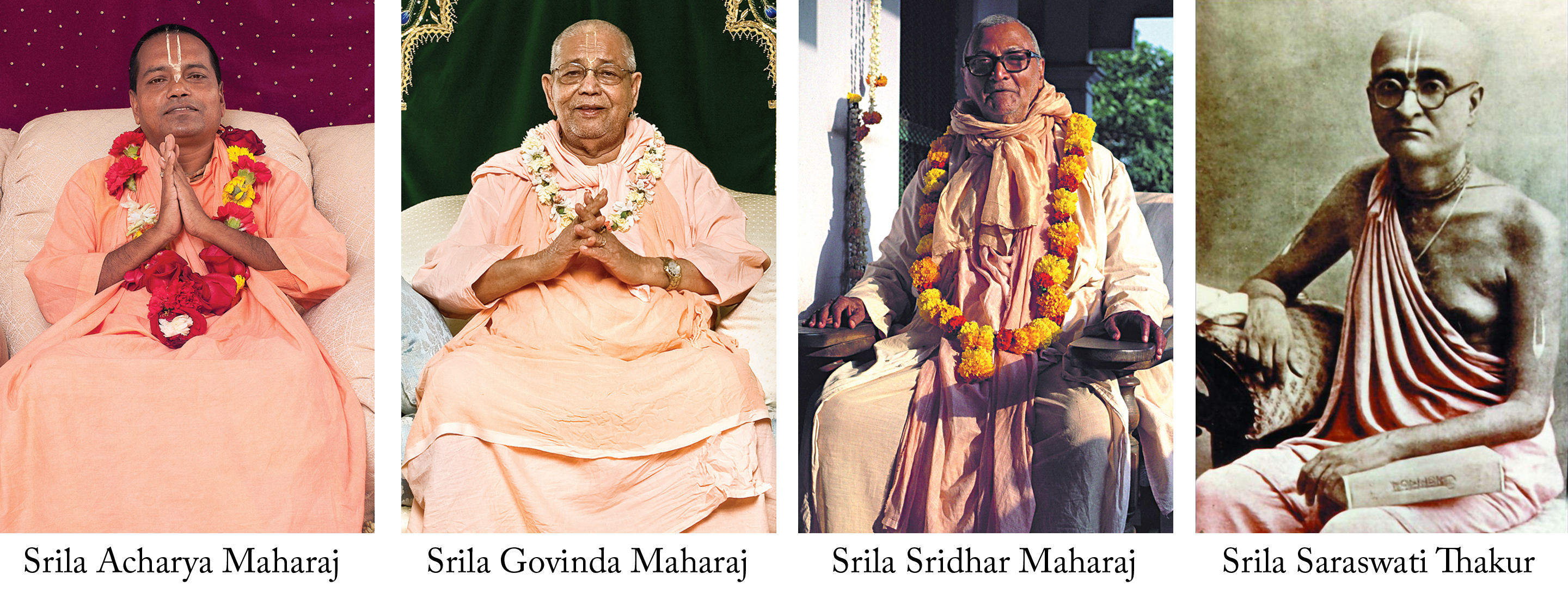Bhakti Yoga
The innermost hankering of every living soul is for beauty, love, affection, and harmony; not for power, knowledge, or anything else. This is the diagnosis of the whole creation in time and space: their common cause is one.
Our guardians
For everything from our ideals to our daily activities at the Bhakti Yoga
Institute, we draw our continuous inspiration and guidance from a
succession of spiritual teachers known for their unparalleled depth,
dedication, and insight into the teachings of Bhakti. Each of our guardians,
in their own unique way, have offered profound revelations to the Bhakti
Yoga tradition, making teachings that originated from the Vedas in India
relevant and applicable to the practice of spiritual life in the 21st Century.
We offer any credit of our endeavor to serve the community at the Bhakti
Yoga Institute to them.

Bhakti-yoga
The Bhagavad-gita, literally the ‘song of God’, is a text that has played a central role in the lives of practitioners of yoga for millennia. The Gita outlines different types of yoga—the yoga of action (karma), the yoga of knowledge (jnana), the yoga of meditation (ashtanga)—and their progressive development and culmination in Bhakti Yoga; the yoga of love and devotion, which in spite of being the highest form of yoga, is also the most accessible and natural to practise.
As Sri Krishna says about Bhakti Yoga in the Gita (9.2),
raja-vidya raja-guhyam pavitram idam uttamam
pratyaksavagamam dharmyam susukham kartum avyayam
“Know this to be the king of secrets, the king of knowledge, supreme, pure, and imperishable. It is known by direct realisation, it is the perfection of religion, and very easy to practise.

While other forms of yoga require some previous knowledge, experience, or physical ability, bhakti-yoga can be practised by anyone who simply has a heart and an aspiration for a higher way of life. Furthermore, it is stated that whatever can be attained through great effort by the practise of other yogas—namely, mastership of body, mind, and senses—will be very easily achieved by the practise of bhakti-yoga. Not only that, but a positive prospect is also offered: a life of love with the divine in the eternal, dynamic, spiritual plane.
Krishna sings in Bhagavad-gita (9.27),
yat karosi yad asnasi yaj juhosi dadasi yat
yat tapasyasi kaunteya tat kurusva mad-arpanam
“Whatever you do, whatever you eat, whatever you offer in sacrifice, whatever you give, and whatever vow you may keep—do everything as an offering unto me.”
Simply by dovetailing our daily action with a conscious desire to connect with and satisfy our supreme source, we will naturally attain purification of body and mind and also realise our divine potential. Thus through the practice of bhakti-yoga, the most simple day-to-day duties like cooking, cleaning, driving, gardening, typing, and so on can become most joyful and profound.

